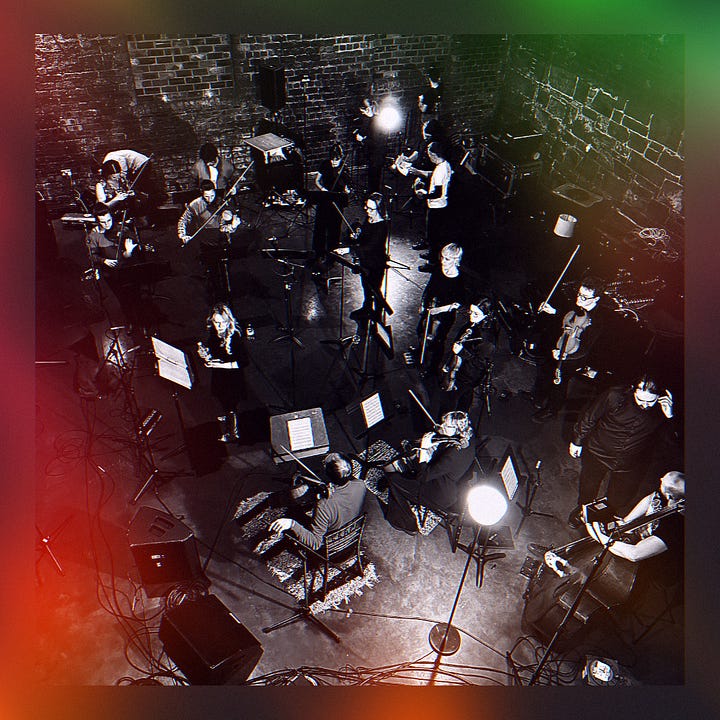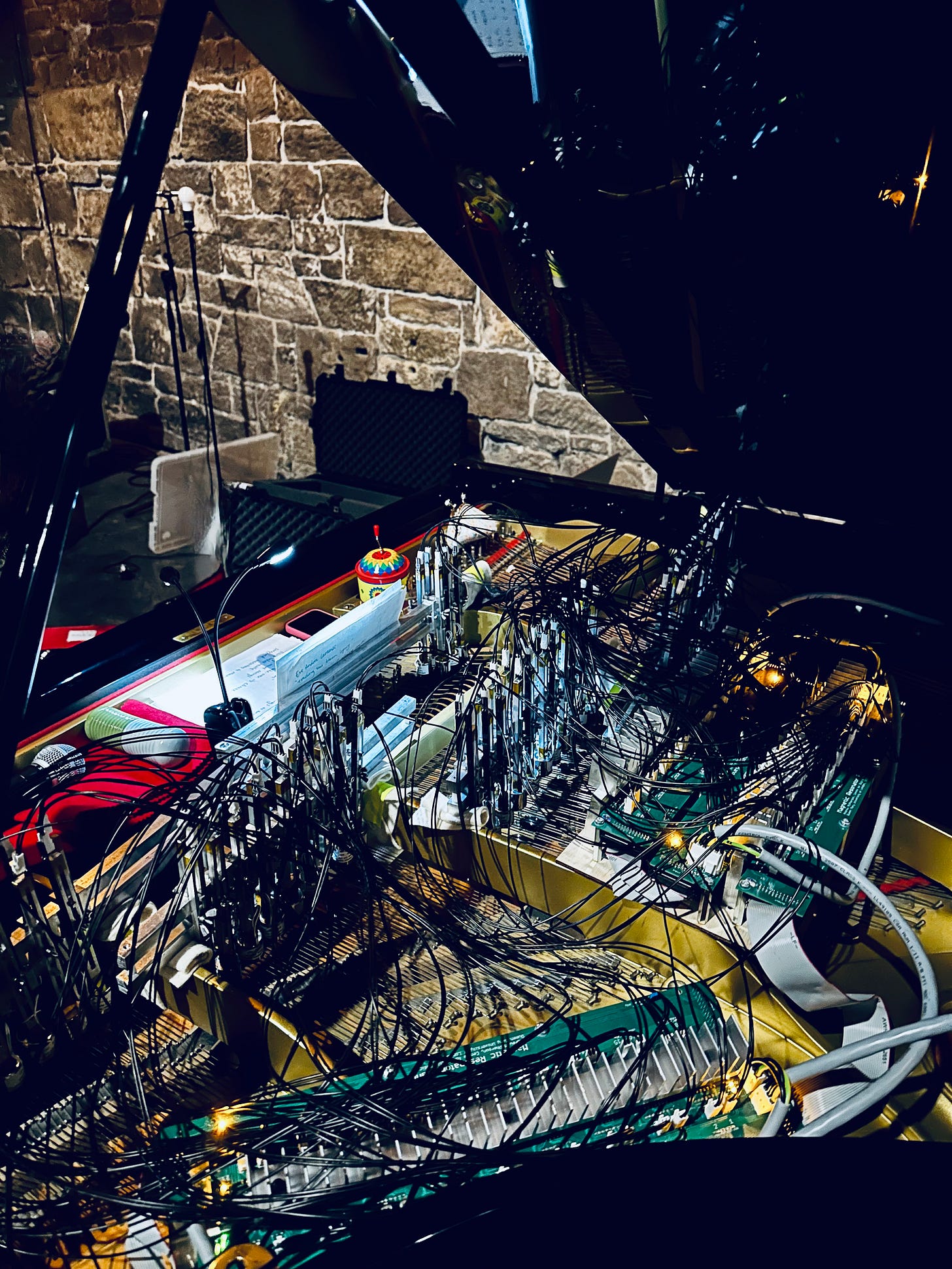Backstage in December
'Old' and 'New' music and a Magnetic Resonator Piano
I am listening to …
the North German organist and composer Franz Tunder (1614-1667) who is probably best known for preceding Buxtehude as organist at the Lübeck Marienkirche. Of his work only around 17 choral pieces in German and Latin survived, along with some dramatic pieces for organ. Tunder also established a tradition of Abendspiel or Abendmusik in the Hanse town, originally meant specifically for businessmen who congregated at the weekly opening of the town's stock exchange. Free of charge, as they were being financed by the local business community, the ‘Eveningmusic’ continued through the 17th and 18th centuries. (I am very much in favour of reviving this tradition in the City of London and elsewhere!)
Have a listen to this beautiful Aria, a fitting December addition to your Christmas Playlist
and if you like what you hear, listen to more Tunder here, performed by Musica Poetica, an ensemble founded by harpsichord musicians Oliver John Ruthven:
I am thinking about …
a recent 2-day contemporary music festival I attended. Besides the fantastic music, I truly enjoyed the set up and thoughtful planning behind The Night with… in Glasgow.1
The concerts were designed to be somewhat informal, and the space lent itself to that format. The building provided one open space with the stage (not raised) at one end, a bar to the side, and flexible seating. Additionally, there was a smaller hall for a more intimate concert setup. The audience was able to dip in and out of concerts if they wanted to which worked surprisingly well as everybody was extremely respectful when moving around. The overall mood of the audience could be described as ‘curious’, ‘adventurous', ‘open-minded’ and very friendly. They were rubbing shoulders with musicians and composers who were equally eager to listen to each other.


The festival also featured panel discussions open to all, as well as speed-dating where ensembles, promoters, composers, festival directors, etc., could network.
The Night With… setup demonstrated that there is no such thing as the ‘classical concert.' Instead of adhering to a single format, there is as much variety as we choose to embrace. As Kate Molleson states in Sound within Sound:
“If classical music is serious about wanting change, it needs to reclaim its innate and vital sense of adventure.”
This festival is undoubtedly paving the way. And once Matthew and the festival team have recovered, I really hope they will start planning the next one.
I am looking at
the Magnetic Resonator Piano I encountered at the Glasgow festival for the first time. The instrument was developed by Andrew McPherson, a composer and musical instrument designer, Professor of Design Engineering and Music at Imperial College London and Professor of Musical Interaction at Queen Mary University of London! (I am in awe of this impressive interdisciplinary bio.)
“The magnetic resonator piano is an augmented piano which uses electromagnets to elicit new sounds from the strings of a grand piano. The MRP extends the sonic vocabulary of the piano to include infinite sustain, crescendos from silence, harmonics, pitch bends and new timbres, all produced acoustically without the use of speakers. The MRP is an electronic instrument, but the experience of playing it closely resembles the acoustic piano it inherits from.” (Andrew McPherson)
Listen to this piece for magnetic resonator piano and string quartet by Xenia Pestova Bennett, where the sounds seem to gently oscillate back and forth between precision, control, and a shimmering continuum of change - melancholic and hopeful all at once.
Thank you
for joining me backstage. And I can’t leave without adding one more piece for your December playlist. It perfectly sums up the theme of this letter and this month.
I wish you all a peaceful few days with friends and family. May you keep or rediscover your sense of enchantment.
Kirsten
PS There is a lot of reading, listening, research and travel involved in my line of work; I stumble across many interesting things and ideas I can't just leave behind so I decided to write about them and share with you.
The festival originated from a concert series run by Matthew Whiteside, which provides development and commissioning opportunities for composers at all stages of their career.


